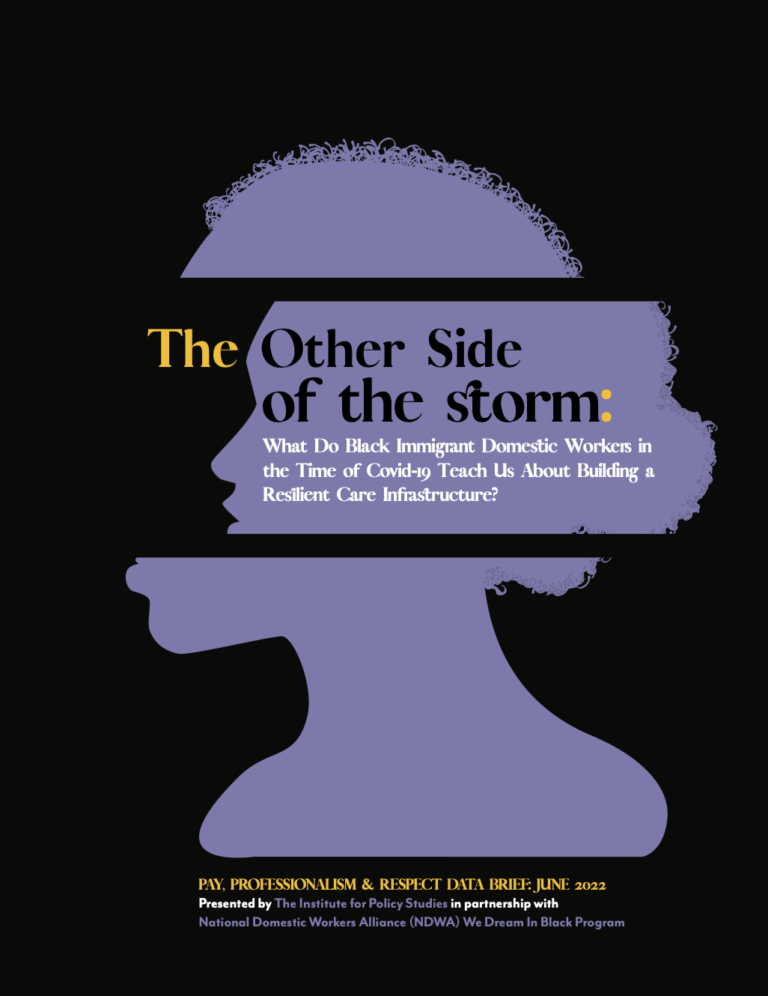With the persistent reality of COVID-19 virus resurgence, our nation’s policymakers have turned their attention to making investments that strengthen the resilience of our families, communities, and the national infrastructure in the face of inevitable calamities due to climate change and future public health and economic crises. Those policy decisions and investments must begin with funding vulnerable people and systems that work to secure the safety and wellbeing of all of us. This means investing in Black immigrant domestic workers who are an essential part of the care infrastructure.
The swift and devastating consequences of the global pandemic in the United States in early 2020 laid bare a number of irrefutable realities. First, while the pandemic affected everyone in America, its impact was more severe among low-income families, Black, Latinx, and other communities of color. Second, our physical survival and economic recovery from the increasingly frequent and severe public health and environmental and economic crises hinge not only on the strength of our physical infrastructure but on our human-based “care infrastructure” — doctors, nurses, first responders, and other essential workers like direct care and domestic workers.
In the early months of the pandemic, healthcare and other essential workers rightfully received media coverage and support for the role they played – often at life-threatening risk – to protect, care for and save the public. But there was one sector of this essential care infrastructure whose experiences went unnoticed: domestic workers. These essential workers are a vital and often invisible workforce within the health care and broader care economy. It is disproportionately composed of women of color and immigrants who care for the elderly, children, and people with disabilities and make work possible for those who must work away from home.

